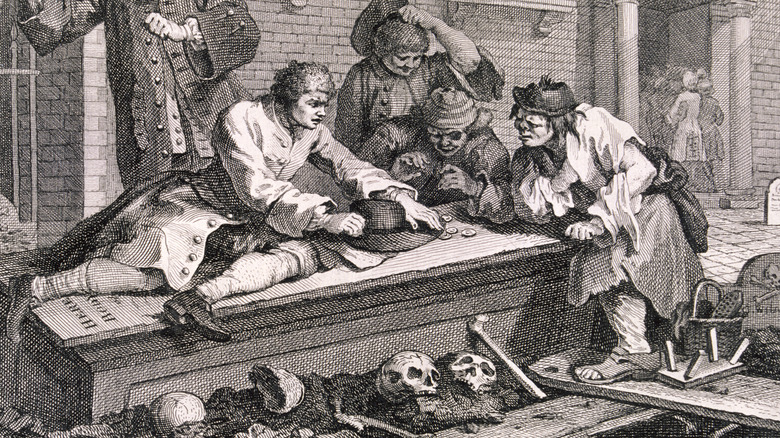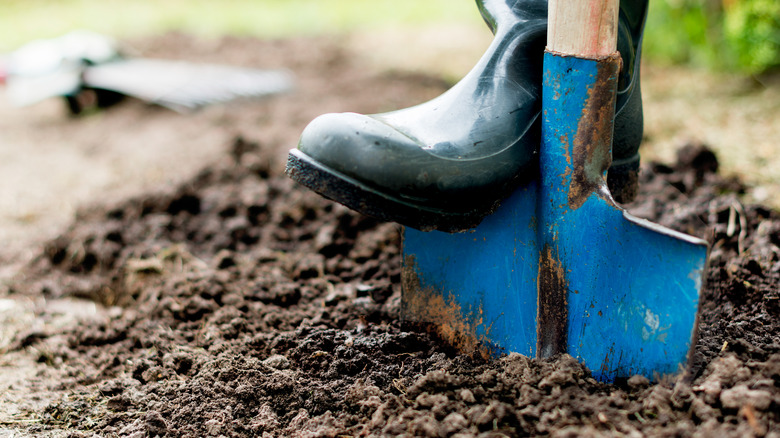How Much Grave Robbers Really Got Paid
People have been robbing graves for almost as long as we've been burying our dead beneath the ground. After all, the dead are sometimes buried with jewelry or other keepsakes, and some enterprising criminals believed that there was no need to keep an object of value six feet under, when it could just as easily be dug up sold off. What's more, there was a time in European and American history when the bodies of the deceased were every bit as valuable, if not more so, than whatever they were buried with. That's because, as reported by JSTOR, once medical schools began studying cadavers and anatomy instead of folklore and superstition, and once the supply of executed criminals to dissect started drying up, institutions turned to grave-robbing.
For a time, it was an industry, and the men who did the actual business of digging up the bodies had it down to a science, as Smithsonian reported. What's more, they even had a darkly comical name for themselves: "resurrectionists."
But was quasi-illegal (the police usually looked the other way) grave robbing a profitable enterprise? Yes, actually, in comparison to the wages other, legal workers made at the time.
a grave robber could make quite a bit of money (comparatively)
During the "heyday," in a manner of speaking, of grave-robbing in the U.S., politicians and medical schools largely saw it as a necessary evil, and were loath to do much, if anything, about it, according to PBS. Those caught in the act, when they were punished at all, usually got a trivial punishment, such as a small fine.
For the people actually doing the dirty work of grave robbing, however, not only did it carry minimal risk, it was actually quite lucrative. As All That's Interesting reported, a grave robber could earn between $5 and $25 per body. By comparison, a wage earner in a more respectable and less-illegal profession could expect to earn about $20-25 per week in those days. What's more, according to BBC News, there was a premium on corpses in earlier stages of decay: Fresher bodies brought in higher prices. So lucrative was the grave-robbing trade that some medical students of the time are believed to have financed their own educations by digging up and selling corpses.

